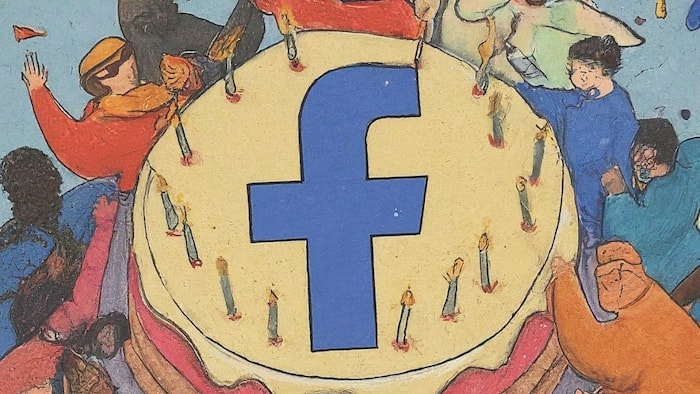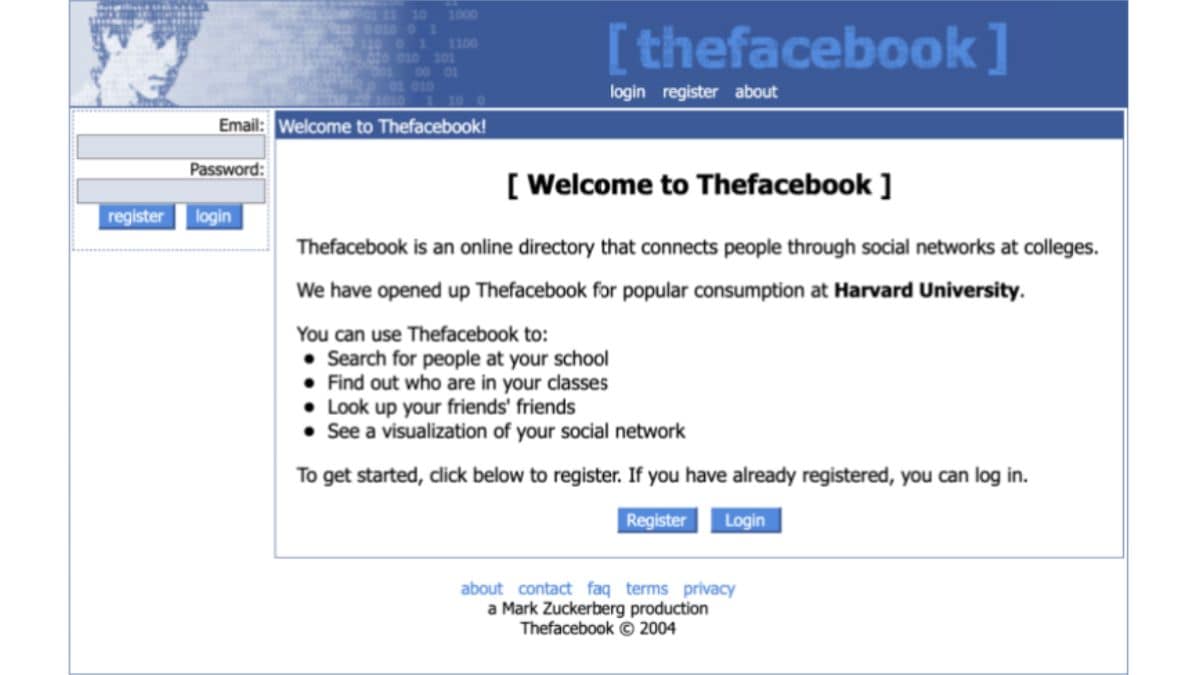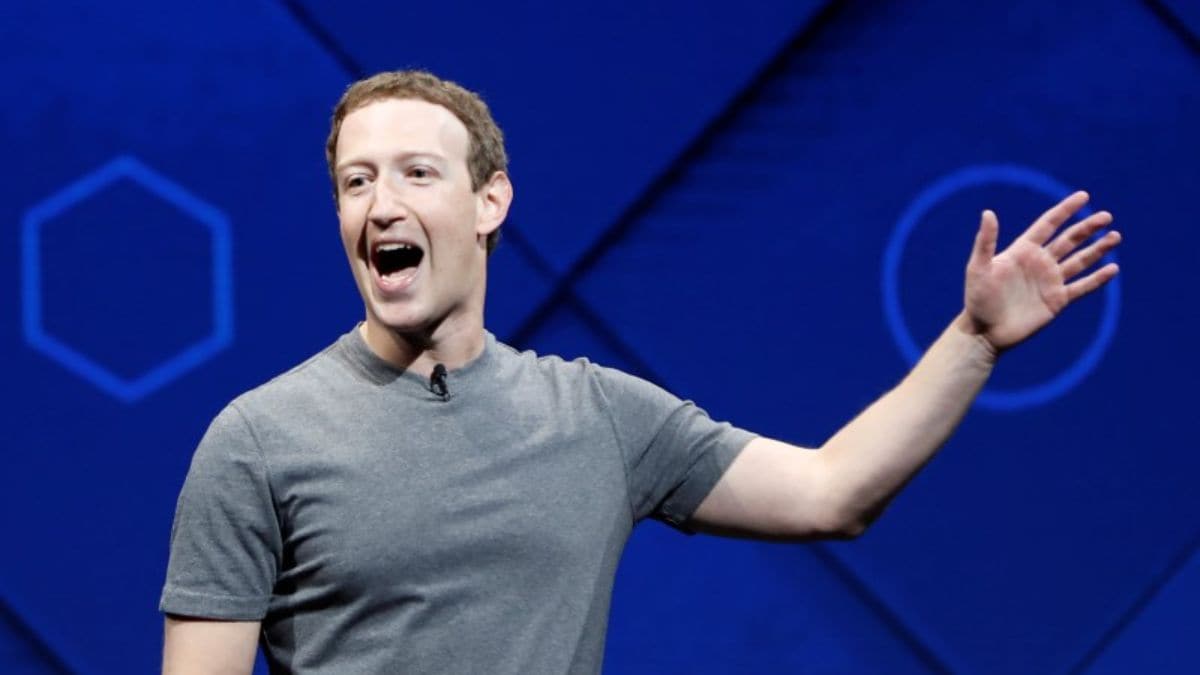
Written By Shubham Verma
Edited By: Shubham Verma | Published By: Shubham Verma | Published: Feb 05, 2024, 10:24 AM (IST)

Facebook is now 20 years old and that calls for celebration. Mark Zuckerberg posted a video on his broadcast channels on WhatsApp and Instagram, showing him blowing candles as the platform he created in 2004 with the help of his friends continues to be the world’s largest social media platform. Known as ‘thefacebook.com’ in the early days, Facebook was essentially an offshoot of one of Zuckerberg’s previous projects called ‘Facemash’, but it turned out to be a game-changer in the history of the internet. As Facebook celebrates its 20th birthday, here are three ways how it changed the world as we know it. Also Read: Meta Accidentally Leaks Ray-Ban Display Glasses With Built-in HUD And sEMG Wristband
Although social media platforms existed before Facebook — or its earlier version — came into being, Zuckerberg’s website gave people new ways to interact online. Posting textual updates and photos on social media was a familiar thing to do, especially during the era when Google’s Orkut and MySpace were all the rage, but Facebook let users tag their friends in photos and, more importantly, ‘poke’ them. Camera phones were still catching up back then, so when Facebook made sharing photos from a digital camera as easy as just tagging people in them, it became an instant hit. Also Read: Mark Zuckerberg Suing Mark Zuckerberg? Sort Of… Here’s The Story

A screengrab of thefacebook.com from the Internet Archives
In less than a year since its launch, Facebook had about one million users, and by 2012, the platform hit the one-billion mark. That was also when Zuckerberg’s company went public after its initial public offering (IPO). Except for a brief dip in its users in 2021, Facebook continued to grow, thanks to business strategies including offering free internet in markets with poor internet connectivity. Although the idea of net neutrality caused Facebook to shutter its ambitious programme, it managed to reach untapped markets — something previous or rival social media companies were still figuring out. Also Read: Reliance Jio Launches AI-Powered JioFrames With HD Camera, Smart Features To Rival Meta Ray-Ban Glasses
Not like Facebook was the only company collecting personal data and utilising it to expand its business, but it certainly was the only one that was doing it differently. It proved that our likes, dislikes, comments, and even photos and videos could become a commodity. This trove of data, collected from hundreds of thousands of users, allowed Facebook to expand its revenue. By selling the data to advertisers, Facebook was minting money until it came under the radar. One of the biggest controversies termed the “Cambridge Analytica scandal” in 2014 forced Facebook to cough up more than $700 million due to a serious data breach. Facebook has since faced multiple penalties from different regulators across the world for “data harvesting” and collecting data of its users without their consent. Even after so many rules and regulations, as well as anti-tracking features built into our smartphones, Facebook is one of the biggest advertising giants.

When Facebook was growing, it was because of incessant conversations happening on the platform. But those conversations were comments on posts, so Facebook introduced Messenger. It was an instant messaging platform, much like Yahoo! Messenger or AOL but better and more refined. Facebook then made one of its biggest decisions that turned around the business. It acquired WhatsApp in 2014 for a total of $16 billion. WhatsApp changed the way people communicated, bringing instant messaging to the mainstream. Not only did it simplify communicating with friends in a far-away place without needing a high-speed internet connection, but it also made it richer through various features.
Facebook is now a part of Meta, Inc. after the rebranding in 2021 as are other acquired platforms like WhatsApp, Instagram, and Oculus. These tentpole properties have helped the company become one of the biggest technology companies in the world. Although there have been setbacks for Meta and the young population no longer finds Facebook happening, the revenue is not impacted. Meta on Thursday reported a revenue of $40.1 billion and a profit of $14 billion for the fourth quarter of last year.
Meta is also one of the companies working actively towards artificial intelligence and using it in its products. It has doubled down on its efforts to incorporate the latest AI features into Facebook, WhatsApp, and Instagram, especially when its rivals are offering dedicated AI services to users. Although the company’s ambitious plan to create the metaverse seems to have gone off the rails, it has not admittedly given up. Oculus headsets are among the highest-selling wearables in supported markets and that should give hope for the future of the metaverse. Among other plans, Meta is also investing heavily into its custom chips called “Artemis” internally to level up in the AI competition.